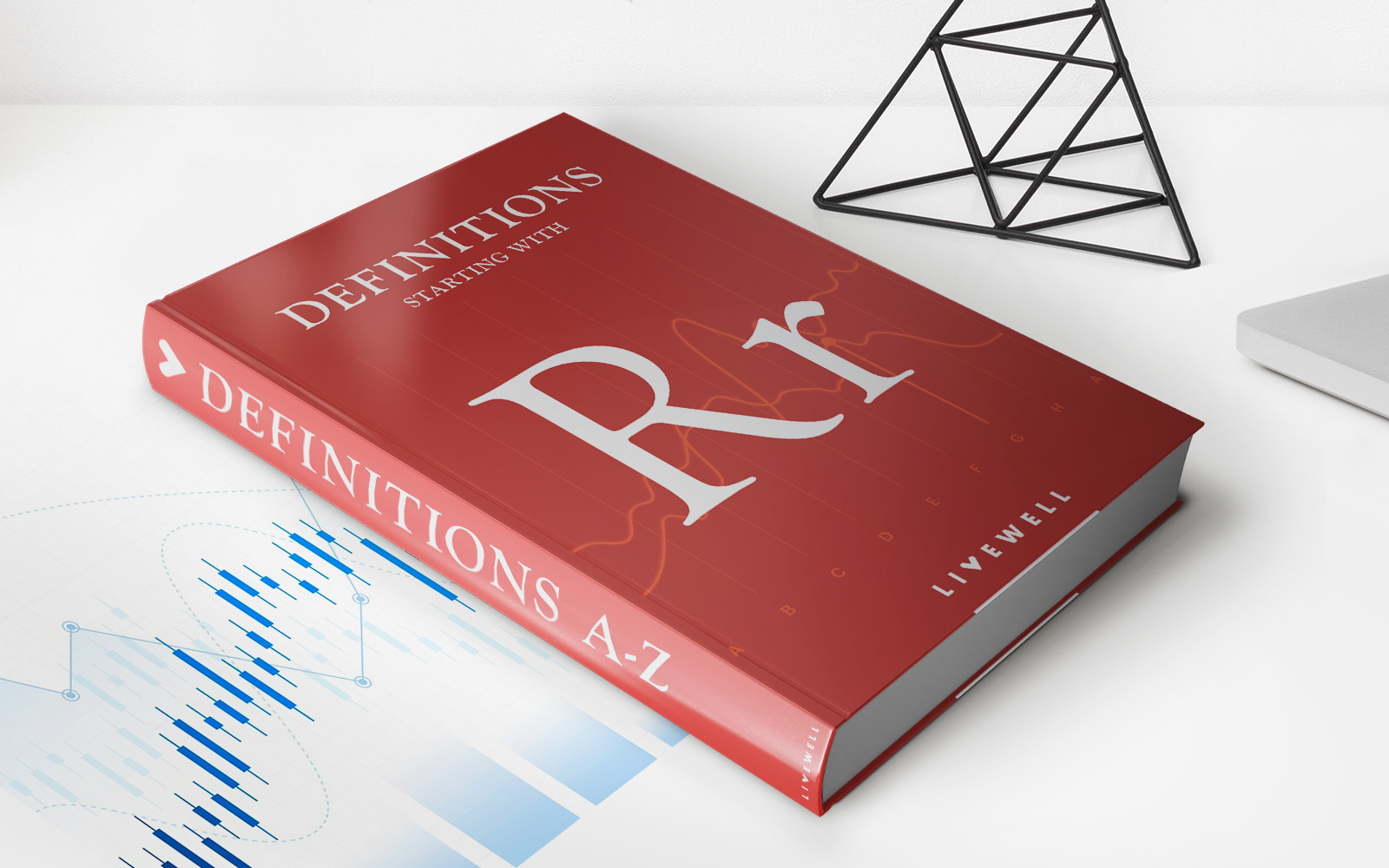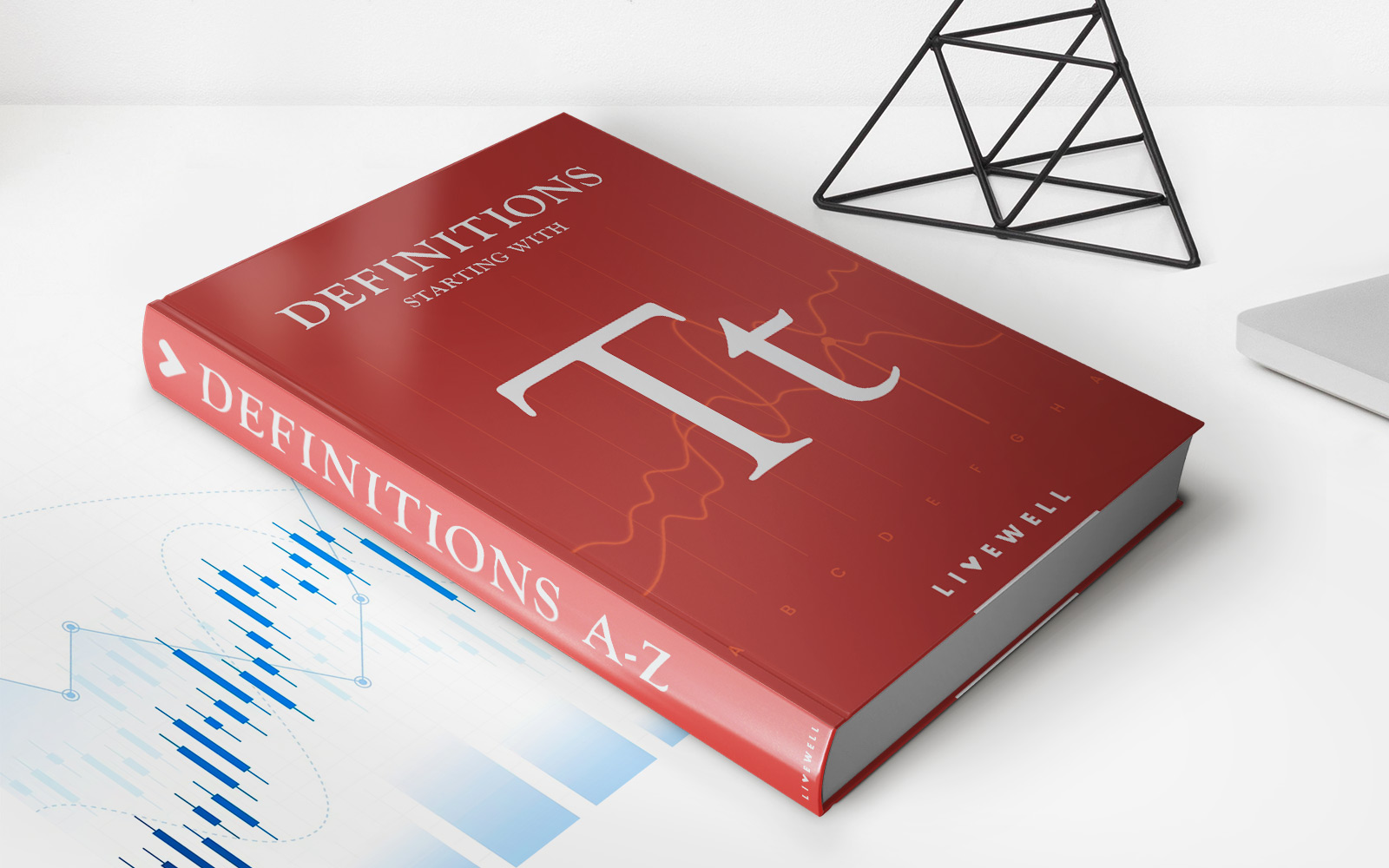

Finance
What Is Loss Payee On Insurance
Published: November 24, 2023
Discover what loss payee on insurance means and how it impacts your financial security. Explore insights and tips on finance-related matters.
(Many of the links in this article redirect to a specific reviewed product. Your purchase of these products through affiliate links helps to generate commission for LiveWell, at no extra cost. Learn more)
Table of Contents
Introduction
Welcome to the world of insurance, where terms like “loss payee” can often feel confusing and overwhelming. However, understanding the role of a loss payee is crucial to comprehending the intricacies of insurance policies and claims. In this article, we will demystify the concept of a loss payee and explore its significance in the realm of insurance.
Insurance is a means of protecting oneself from various risks and uncertainties. It provides financial compensation for unforeseen events such as accidents, natural disasters, or theft. When a policyholder purchases insurance, they enter into an agreement with an insurance company, transferring the risk of potential loss to that company in exchange for payment of a premium.
Within this agreement, there are multiple stakeholders involved, including the policyholder, the insurance company, and often a loss payee. While the policyholder and the insurance company are primary parties to the contract, the loss payee plays a crucial role in certain types of insurance scenarios.
So, what exactly is a loss payee in the context of insurance? A loss payee is a person or entity designated by the policyholder, typically a lender or a financial institution, who has a financial interest in the insured property. They have a legal right to receive insurance proceeds in the event of a covered loss.
To put it simply, the loss payee is someone who has a financial stake in the insured property. This could be a mortgage company, an auto lender, or any other entity with a financial interest in the property. In the event of a covered loss, the insurance company will release the insurance proceeds to the loss payee to satisfy the outstanding debt or protect their interest.
Now that we have a basic understanding of what a loss payee is, let’s explore their role in insurance in more detail.
Definition of Loss Payee
In the world of insurance, a loss payee refers to a person or entity that is designated to receive the insurance proceeds in the event of a covered loss. The loss payee is typically an individual or organization that has a financial interest in the insured property. This can include lenders, financial institutions, or leasing companies.
The designation of a loss payee is a contractual arrangement between the policyholder and the insurance company. It is an important aspect of insurance policies, particularly in scenarios where the insured property is being financed or leased. By designating a loss payee, the policyholder is ensuring that the financial interest of the designated party is protected in the event of a loss.
When a loss occurs and a claim is filed, the insurance company will issue a payment to the loss payee in order to satisfy any outstanding financial obligations related to the insured property. The amount of the payment will vary depending on the terms of the insurance policy and the extent of the loss. Once the loss payee has received the insurance proceeds, they have the authority to use the funds as necessary to protect their financial interest.
It is important to note that the designation of a loss payee does not absolve the policyholder of their responsibilities as the insured. The policyholder remains responsible for fulfilling their obligations under the insurance policy, such as paying the premiums and adhering to policy conditions. The designation of a loss payee simply ensures that in the event of a covered loss, the designated party will receive the insurance proceeds to protect their financial interest.
Overall, the role of a loss payee is to safeguard the financial interests of those who have a stake in the insured property. Whether it is a mortgage lender, a leasing company, or a financial institution, the loss payee designation provides a layer of protection in the event of a loss. Understanding the concept of a loss payee is essential for both policyholders and insurance companies to ensure effective risk management and financial protection.
Role of Loss Payee in Insurance
The role of a loss payee in insurance is to protect the financial interests of parties who have a vested interest in the insured property. Whether it’s a lender, leasing company, or any other entity that has provided financing, the designation of a loss payee ensures that their financial stake is safeguarded in the event of a covered loss. Let’s take a closer look at the role of a loss payee in insurance.
One of the primary functions of a loss payee is to receive the insurance proceeds in the event of a covered loss. This is especially important in scenarios where the insured property has been financed or leased. By designating a loss payee, the policyholder is assuring the financial institution or other parties that their investment is protected.
Additionally, the role of a loss payee extends to monitoring the insurance coverage on the property. Once designated as a loss payee, the entity has a vested interest in ensuring that the appropriate insurance coverage is in place and maintained throughout the policy term. They may require proof of insurance, updates on policy changes, and notifications in the event of policy cancellation or non-renewal.
Loss payees also play a crucial role in the claims process. When a covered loss occurs, the loss payee is notified by the policyholder and may be involved in the claims handling process. They have the right to review and provide input on the repair or replacement estimates, negotiate with the insurance company on the settlement amount, and ensure that the insurance proceeds are used to protect their financial interest.
Moreover, loss payees act as a point of contact between the insurance company and the policyholder. They often handle communication with the insurance company on matters related to the insured property. This can include providing proof of insurance, requesting policy changes, or addressing any concerns or inquiries regarding the coverage.
Overall, the role of a loss payee in insurance is vital for protecting the financial interests of parties with a stake in the insured property. By designating a loss payee, policyholders provide assurance to lenders, leasing companies, and other stakeholders that their investment is safeguarded in the event of a covered loss. The involvement of the loss payee in the claims process ensures that the insurance proceeds are appropriately deployed to protect the financial interest of all parties involved.
How Loss Payee is Designated on Insurance Policies
The designation of a loss payee on an insurance policy is a crucial step in ensuring that the financial interests of parties with a vested interest in the insured property are protected. The process of designating a loss payee involves specific steps that both the policyholder and the insurance company must follow. Let’s explore how a loss payee is designated on insurance policies.
When a policyholder enters into an insurance agreement, they have the opportunity to designate a loss payee. This is typically done at the time of policy inception or during the underwriting process. The loss payee designation is typically outlined in a separate section of the insurance policy, often referred to as the “Loss Payee Clause” or “Loss Payable Clause”.
To designate a loss payee, the policyholder must provide the necessary information about the entity or individual with a financial interest in the insured property. This includes the name, address, and contact information of the loss payee. Additionally, the policyholder may need to provide supporting documentation, such as loan agreements or leasing contracts, to validate the financial interest of the loss payee.
Once the loss payee is designated, the insurance company updates the policy accordingly. The loss payee’s information is added to the policy, and their rights as a designated loss payee are outlined in the policy wording. The insurance company may also issue a certificate of insurance to the loss payee, providing confirmation of the loss payee designation and the terms of coverage.
It is important for policyholders to review the loss payee designation carefully to ensure accuracy. Any errors or discrepancies in the loss payee information can result in delays or complications in the event of a covered loss. Likewise, loss payees should also verify that their information is correctly noted on the insurance policy to ensure that they can exercise their rights and protect their financial interest.
Furthermore, it’s worth noting that the loss payee designation can be changed or updated during the policy term if necessary. Policyholders may need to notify the insurance company and provide updated information for the new loss payee, along with any supporting documentation to validate the change.
In summary, the designation of a loss payee on an insurance policy involves providing the necessary information about the entity or individual with a financial interest in the insured property. This information is added to the policy, and the rights and responsibilities of the loss payee are outlined in the policy wording. Ensuring accurate and up-to-date loss payee designation is essential for safeguarding the financial interests of parties involved.
Rights and Responsibilities of Loss Payee
As a designated loss payee on an insurance policy, an entity or individual has specific rights and responsibilities. These rights and responsibilities are outlined in the policy wording and govern the relationship between the loss payee, the policyholder, and the insurance company. Let’s explore the rights and responsibilities of a loss payee in the context of insurance.
1. Right to Payment: One of the primary rights of a loss payee is the right to receive the insurance proceeds in the event of a covered loss. The loss payee has a financial interest in the insured property, and the insurance company is obligated to release the appropriate insurance proceeds to the loss payee to protect their interest.
2. Verification of Coverage: The loss payee has the right to verify the insurance coverage on the property. They may require proof of insurance, updates on policy changes, and notifications in the event of policy cancellation or non-renewal. This allows them to ensure that their financial interest is safeguarded adequately.
3. Involvement in Claims Process: The loss payee has the right to be involved in the claims process. They may review and provide input on the repair or replacement estimates, negotiate with the insurance company on the settlement amount, and ensure that the insurance proceeds are used to protect their financial interest.
4. Communication with the Insurance Company: The loss payee has the right to communicate with the insurance company on matters related to the insured property. This includes providing updated information, requesting policy changes, or addressing any concerns or inquiries regarding the coverage. Open and transparent communication ensures that the loss payee’s interests are properly represented.
With these rights come responsibilities for the loss payee:
1. Timely Notification: The loss payee has a responsibility to promptly notify the insurance company in the event of a loss. This includes providing all necessary information and documentation to support the claim and protect their financial interest.
2. Cooperation with the Insurance Company: The loss payee is responsible for cooperating with the insurance company throughout the claims process. This includes providing any requested information or documentation, facilitating inspections or investigations, and complying with reasonable requests from the insurance company.
3. Proper Use of Insurance Proceeds: The loss payee has a responsibility to use the insurance proceeds to protect their financial interest. This may involve paying off outstanding debt related to the insured property or investing in repairs or replacements to maintain the value of the property.
4. Compliance with Policy Terms: The loss payee is responsible for ensuring that the policyholder complies with the terms and conditions of the insurance policy. This includes paying the premiums on time, adhering to policy requirements, and providing accurate and updated information to the insurance company.
Understanding and fulfilling these rights and responsibilities is crucial for both the loss payee and the insurance company. By doing so, they can work together to protect the financial interest of the loss payee, ensuring a smooth and fair claims process.
Loss Payee’s Impact on Insurance Claims
The designation of a loss payee on an insurance policy has a significant impact on the claims process. Loss payees, typically lenders or leasing companies, have a vested financial interest in the insured property and play a crucial role in ensuring that their interest is protected in the event of a covered loss. Let’s explore the impact of a loss payee on insurance claims.
When a covered loss occurs, the policyholder and the loss payee must work together to file an insurance claim. The loss payee is responsible for promptly notifying the insurance company of the loss and providing all necessary documentation to support the claim. This includes details about the loss, estimates for repairs or replacements, and any other relevant information requested by the insurance company.
Once the claim is filed, the loss payee is typically involved in the claims handling process. They may review and provide input on repair or replacement estimates to ensure that the insurance proceeds adequately cover the loss. The loss payee also has the right to negotiate with the insurance company on the settlement amount to protect their financial interest.
Furthermore, the insurance company will often issue the insurance proceeds directly to the loss payee rather than the policyholder. This is done to ensure that the funds are used to protect the financial interest of the loss payee and prevent potential misuse.
The loss payee has a responsibility to use the insurance proceeds for the intended purpose, which is typically to satisfy any outstanding debt related to the insured property. This may involve paying off the mortgage, auto loan, or lease agreement. In some cases, the loss payee may choose to allocate a portion of the insurance proceeds to necessary repairs or replacements to maintain the value of the property.
Additionally, the involvement of a loss payee in the claims process can add an extra layer of complexity and communication. The loss payee may need to provide updated information about the property, such as changes in ownership or additional insurance coverage. They may also need to coordinate with the policyholder and the insurance company on matters related to the claim, ensuring that all parties are aligned in protecting the financial interest of the loss payee.
Overall, the presence of a loss payee on an insurance policy significantly impacts the claims process. The loss payee’s involvement ensures that their financial interest in the insured property is protected, and the insurance proceeds are appropriately used. By working collaboratively, the loss payee, policyholder, and insurance company can navigate the claims process effectively and ensure a fair and efficient resolution.
Common Types of Loss Payees in Insurance
Loss payees are entities or individuals who have a financial interest in the insured property and are designated to receive the insurance proceeds in the event of a covered loss. Depending on the type of insurance policy, there are various common types of loss payees. Let’s explore some of the most common types of loss payees in insurance.
1. Mortgage Lenders: Mortgage lenders are one of the most common types of loss payees in property insurance. When a property is financed with a mortgage, the lender has a significant financial interest in the property. In the event of a covered loss, the insurance proceeds are paid to the mortgage lender to satisfy any outstanding debt.
2. Auto Lenders: In auto insurance, it is common for lenders to be designated as loss payees. When a vehicle is financed or leased, the auto lender has a financial interest in the vehicle. In case of a covered loss, the insurance proceeds are released to the auto lender to pay off any outstanding loan or lease obligation.
3. Leasing Companies: Leasing companies are often designated as loss payees in commercial property insurance or equipment insurance. When businesses lease equipment or property, the leasing company retains a financial interest in the leased assets. In the event of a covered loss, the insurance proceeds are paid to the leasing company to protect their investment.
4. Contractors and Construction Companies: In construction-related insurance, subcontractors or construction companies may be designated as loss payees. This ensures that in case of damage or loss on a construction site, the insurance proceeds are directed to the subcontractors or construction companies involved in the project.
5. Financial Institutions: Apart from mortgage lenders and auto lenders, other types of financial institutions may also be designated as loss payees. Banks, credit unions, and other lenders that provide financing for various types of assets may require loss payee designation to protect their financial interests.
6. Equipment Lessors: Companies that lease or rent out equipment, such as heavy machinery or specialized tools, may also be designated as loss payees in insurance policies. These loss payees have a vested interest in ensuring the protection of their leased assets in the event of loss or damage.
7. Subrogation Companies: In some cases, a separate subrogation company may be designated as a loss payee. These companies specialize in recovering losses on behalf of other parties. They may step in to receive the insurance proceeds and pursue legal action or seek further recovery from responsible parties.
8. Public Entities and Government Agencies: Certain types of insurance policies may require the designation of public entities or government agencies as loss payees. This can include policies for public infrastructure, government-owned properties, or public-funded projects.
It’s important to note that the specific types of loss payees can vary based on the jurisdiction and the type of insurance coverage. Policyholders should carefully review their insurance policies to understand the requirements for loss payee designation and ensure compliance with the terms of the policy.
Understanding the different types of loss payees in insurance is essential for both policyholders and insurance companies to ensure that the appropriate parties are designated and protected in case of a covered loss. By designating the correct loss payee, policyholders can ensure that the financial interests of relevant parties are adequately safeguarded.
Conclusion
The concept of a loss payee may initially seem complex, but it plays a significant role in the world of insurance. A loss payee is a crucial designation that protects the financial interests of parties who have a vested interest in the insured property. By designating a loss payee, policyholders ensure that lenders, leasing companies, and other entities with a financial stake are protected in the event of a covered loss.
The rights and responsibilities of a loss payee encompass receiving insurance proceeds, verifying coverage, participating in the claims process, and maintaining communication with the insurance company. The involvement of a loss payee can impact the claims process by ensuring fair treatment and appropriate use of insurance proceeds to protect their financial interest.
Common types of loss payees include mortgage lenders, auto lenders, leasing companies, contractors, equipment lessors, and subrogation companies. Each type of loss payee has a specific financial interest in the insured property and requires proper designation to ensure protection in the event of a loss.
In conclusion, understanding the concept of a loss payee is crucial for policyholders, insurance companies, and the designated loss payees themselves. It ensures that the appropriate parties are involved in the insurance coverage process, claims handling, and the use of insurance proceeds. By designating the correct loss payee and fulfilling the associated rights and responsibilities, all parties can work together to protect their financial interests and ensure effective risk management in the realm of insurance.














